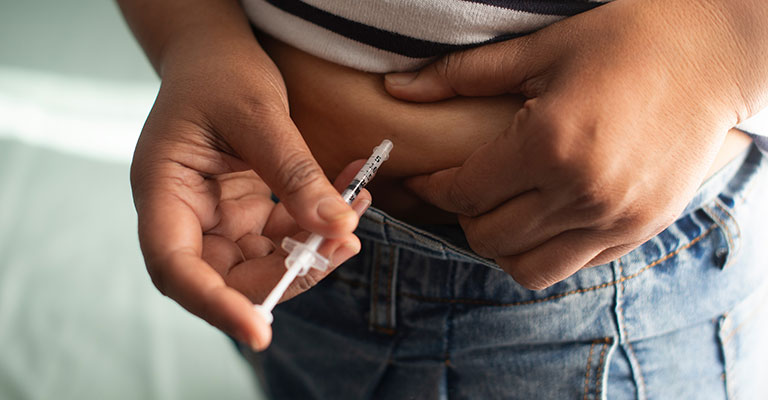Updated by the Progyny Clinical Team — June 2025.
You’ve had your consultation and finished all your preliminary diagnostic testing as part of your workup. Now, you’re ready to get started with in vitro fertilization (IVF) or egg freezing.
Based on your results, your fertility doctor has determined that the protocol for your cycle will be the Lupron down regulation protocol.
There are several protocols that can be used to stimulate the ovaries for IVF or egg freezing. With each, the goal is to maximize the number of mature eggs that can be safely retrieved. Mature eggs can be fertilized and grow into healthy embryos to achieve pregnancy.
What is Lupron?
Lupron (leuprolide acetate) is an injectable fertility drug that is classified as a gonadotropin-releasing hormone (GnRH) agonist. GnRH is a natural hormone made by the brain. It helps trigger the release of two other important hormones: follicle-stimulating hormone (FSH) and luteinizing hormone (LH). FSH is the primary hormone that grows the egg each month, and LH is the primary hormone responsible for the final maturation and ovulation of the egg.
GnRH agonists work in two different ways: First, they have a “flare” effect, resulting in the release of an increased amount of FSH and LH. Then, as you take a small dose each day, GnRH agonists actually turn off the release of FSH and LH to prevent ovulation. Turning off the hormones is called “down regulation.” This is how Lupron can be used differently in different types of stimulation protocols. The timing and dose of the Lupron determines the way that it will work during your cycle.
In the down regulation protocol, Lupron is started at a low daily dose a week before your period. This gives the medicine time to block FSH and LH signals, which helps prevent your body from releasing eggs too early. By stopping early ovulation, your doctor can give your ovaries more time to grow the eggs without the risk of them being released too soon. You are still monitored closely to make sure you’re responding as expected.
The other class of drugs used to prevent ovulation are called GnRH antagonists, which include Cetrotide and Ganirelix. These work quickly in the brain to stop FSH and LH release. GnRH antagonists are used in the “antagonist protocol.”
What is the timeline for Lupron use?
- One week before ovarian stimulation: Often, you will have blood work to confirm you ovulated and are ready to start low-dose Lupron daily.
- Stimulation phase: You will get your period as expected and come in for blood work and an ultrasound to confirm you are ready to start stimulation. The injectable stimulation medicines are started, but you will stay on Lupron daily throughout. The dose of Lupron is often lowered at this point.
- Trigger shot and egg retrieval: When your follicles are the right size on an ultrasound and your hormone levels look good, your doctor will tell you when to take the trigger shot — a hormone called human chorionic gonadotropin (hCG). At that point, you will stop the Lupron and stimulation medicines. hCG works the same way as your natural ovulation hormone by inducing the final maturation of your eggs. The eggs are then retrieved about 36 hours after the trigger shot, before ovulation occurs.
The total amount of time you’ll end up taking Lupron is about three weeks.
Lupron and birth control pills
Your fertility doctor may ask you to start taking birth control pills as part of your protocol since it can help with timing the IVF process and give you scheduling flexibility. The birth control pill suppresses ovulation the month before stimulation and can be overlapped with Lupron. If you are on birth control pills, you may be told what day to start the Lupron and when to return to the clinic to start stimulation without getting a period in between.
If you have questions or concerns, Progyny is here for you. Please contact your Progyny Care Advocate for support.
Disclaimer: The information provided by Progyny is for educational purposes only and is not medical advice. Always consult a qualified healthcare provider for medical guidance.
